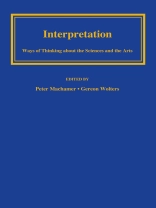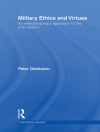The act of interpretation occurs in nearly every area of the arts and sciences. That ubiquity serves as the inspiration for the fourteen essays of this volume from the Pittsburgh-Konstanz series, covering many of the domains in which interpretive practices are found. Individual topics include: the general nature of interpretation and its forms; comparing and contrasting interpretation and hermeneutics; culture as interpretation seen through Hegel's aesthetics; interpreting philosophical texts; methodologies for interpreting human action; interpretation in medical practice focusing on manifestations as indicators of disease; the brain and its interpretative, structured, learning and storage processes; interpreting hybrid wines and cognitive preconceptions of novel objects; and the importance of sensory perception as means of interpreting in the case of dry German Rieslings.In an interesting turn, Nicholas Rescher writes on the interpretation of philosophical texts. Then Catherine Wilson and Andreas Blank explicate and critique Rescher's theories through analysis of the mill passage from Leibniz's <i>Monadology. </i>
About the author
<b>Peter Machamer</b> is professor of history and philosophy of science at the University of Pittsburgh. He is coeditor, with Gereon Wolters, of <i>Thinking about Causes: From Greek Philosophy to Modern Physics</i> and <i>Science, Values, and Objectivity, </i> among other books.












